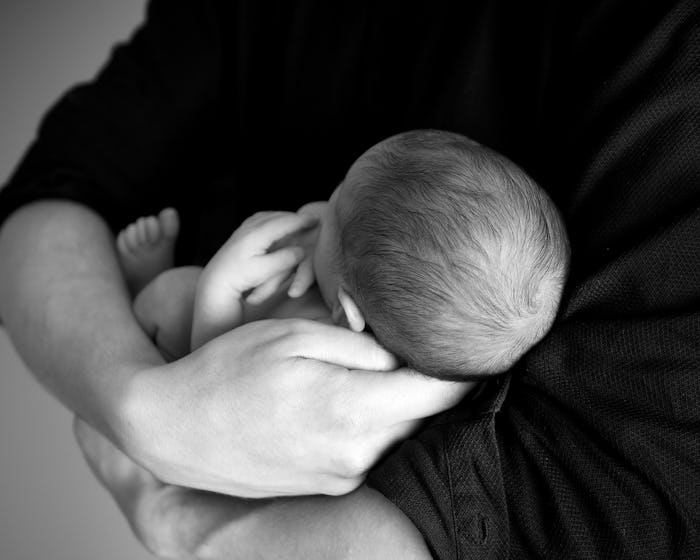The current political climate in the United States has shone an oftentimes harsh light on the challenges that transgender individuals face every day. But the issues related to those who are born intersex — or with genitalia that doesn't neatly match up with that commonly associated with boys or girls — have largely remained squarely in the shadows. But progress is churning on that front. Recently, an intersex child's parents scored a big win in a major case that could change things for intersex kids everywhere.
Pam and Mark Crawford secured $440,000 in settlement money from the South Carolina facility where their son underwent a medically unnecessary genital surgery as a toddler before they adopted him. Court records identify the boy, who is now 12, as M.C., and the documents were made public on Wednesday, BuzzFeed News reported.
When he was just 16 months old, M.C. went under the knife at Medical University of South Carolina (MUSC) to remove his 2-centimeter penis and testicular tissue. He had been born with a condition called "ovotesticular disorder of sexual development," which meant that he also had a small vaginal opening and ovarian tissue. Even though doctors determined that he should look like a girl, and operated on him to make that a reality, he began identifying as a boy by the time he was 7 years old.
Romper reached out to MUSC for comment but has not yet heard back. The settlement, though, states that MUSC "denied all claims of negligence and any liability for the alleged claims but agreed to this compromise of a vigorously disputed claim to avoid the costs of litigation."
The news of the resolution to M.C.'s case came the day after the Human Rights Watch (HRW) and the intersex advocacy group interACT released a report calling for a ban on medically unnecessary surgeries on children before they are old enough to consent to them. Noting that about 1.7 percent of people are believed to be born with characteristics that cannot be easily sorted into the categories of "boy" or "girl," the report claims that surgeries to alter these people's physical appearance "can inflict irreversible physical and psychological harm on them starting in infancy, harms that can last throughout their lives."
Such surgeries include removing testes or ovaries and making vaginas deeper or penises larger. HRW researcher Kyle Knight summed them up as "human rights abuse taking place in a medical setting," according to Reuters.
Still, the HRW report revealed that parents of intersex children often feel pressured to consent to the surgeries for their kids so that the young people will fit in.
Knight pushed back against this idea in speaking with the Associated Press:
The pressure to fit in and live a "‘normal" life is real. But there is no evidence that surgery delivers on the promise of making that easier.
The Associated Press reported that, now, the American Medical Association is pondering discouraging these surgeries, and that the American Academy of Pediatrics is mulling over the issue as well. Additionally, three former surgeons general — Joycelyn Elders, David Satcher, and Richard Carmona — wrote in a June statement that surgeries without consent that don't address physical functioning should end.
M.C.'s parent's case against the Medical University of South Carolina, which raged in court for four years before the settlement was reached, is believed to be the first of its kind. Clearly, this undeniable win for M.C.'s family and the growing consensus among advocates and medical professionals that genital-altering surgeries may not be the best choice shows that the tides are shifting, however slowly.
